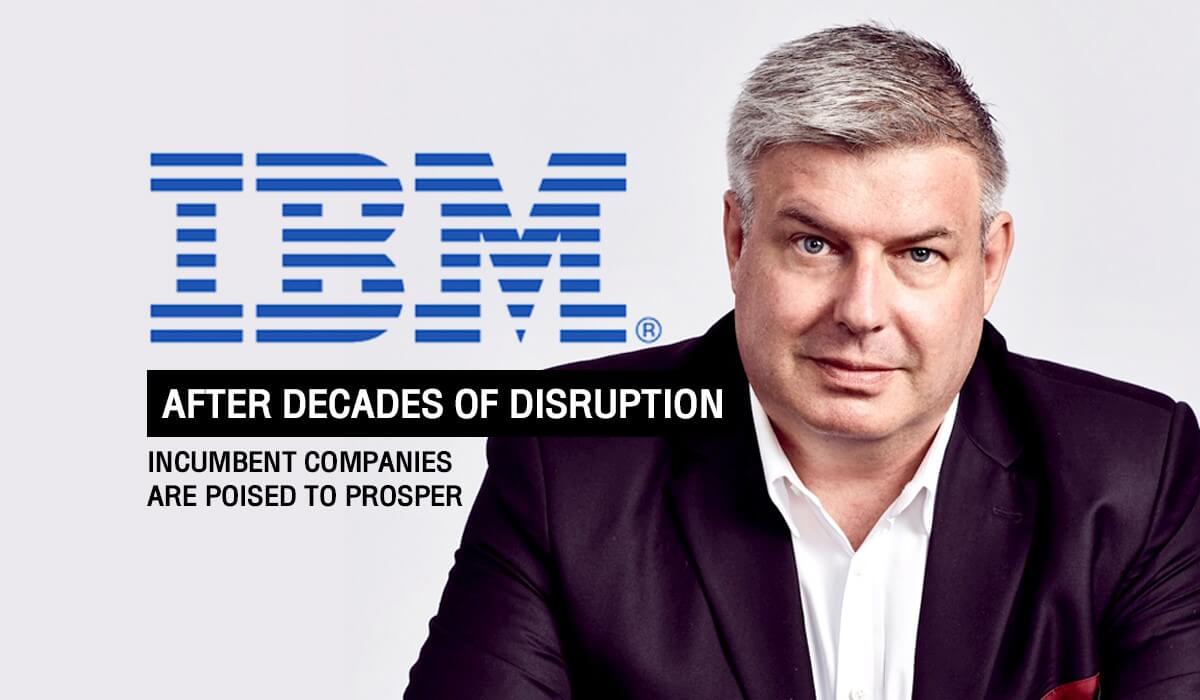Revolutionizing the world through disruptive technology

Two decades after the Internet became a platform for transformation, we are entering a new era of business. While the Internet allowed many disruptive companies to prosper, this new era should favor big, mature companies, or the “incumbents” in many industries.
The incumbents’ history and ways of operating should offer an advantage over newcomers from once again disrupting those industries.
James Kocis, Partner & Country Manager, Global Business Services, IBM Thailand Co., Ltd. said there are two key factors.
While 20 % of all the data in the world is public and searchable on the Internet, 80% is not and some of it is behind organizations’ firewalls. Established organizations can use new tools — such as artificial intelligence, blockchain and cloud — to develop deeper insights from such data. They can combine unstructured data with searchable data to create competitive advantages.
In a cloud -based world, platform business models are emerging. For incumbents, platforms offer the chance to expand their legacy differentiation by reaching out to new industries, becoming a new standard or securing leadership across an entire industry.
Nearly 50% of C-suite executives say they are either investing in or considering a new platform business architecture, according to a new study by IBM’s Institute for Business Value (IBV). At the same time, 72% of survey respondents believe that incumbent organizations, rather than new entrants, are leading the disruption in their industries. And only 22% say smaller companies and start-ups are leading disruptive change.
Those are among the findings of “Incumbents Strike Back: Insights from the Global C-suite Study,” based upon more than 12,800 responses from C-suite executives in 112 countries worldwide. The study is the largest of its kind and is the 19th edition in a series of C-suite studies developed by the IBV, which has collected data and insights from more than 40,000 interviews dating back to 2003.
About 27% of study respondents are leading companies that not only outperformed their peers in both revenue growth and profitability over the past three years, but also in innovation. At the same time, the study finds that leading companies have a strong understanding of their industry’s futures. Three-quarters say that their culture not only rewards successful innovation, but also the ability to recognize failures quickly.
C-suite executives are responding to the changing nature of disruption. The leading companies have become adept at ecosystem advantage, partnering with organizations in their value chains and even sharing physical assets and people skills with them.
The organizations that weathered recent disruptions have likely grown stronger — and better ready to transform — as a result. Fortified by strong relationships and assets, industry incumbents continue to reinvent themselves. Strategic inflection points, or times when the fundamentals in an industry are about to change, are typically long in the making and mostly unseen. It is likely that any new wave of disruption ahead is just as invisible to organizations today as it has been in the past.
Leading companies don’t need to be the first to detect a disruption that could change everything. They operate in something closer to a state of continuous change, ready to reinvent themselves. As incumbents, they are more than prepared before they’re forced to reconsider their options by a new competitor or a market disruption.

